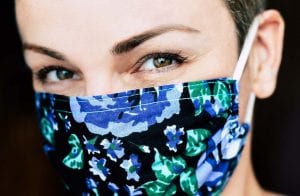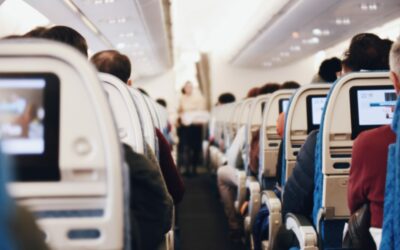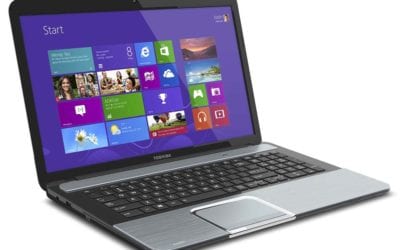The elimination of the national transportation mask mandate, rising COVID cases and changing COVID standards are confusling travelers.
 For many Americans, this past week was one of the most confusing times since the COVID-19 pandemic began. Across the nation, while new cases and hospitalizations remained low compared to mid-January, they were increasing. Nationally, a federal judge in Florida lifted the federal face mask mandate for public transportation (airplanes, trains, buses, etc.) on what appears to be a narrow legal interpretation, not on medical grounds.
For many Americans, this past week was one of the most confusing times since the COVID-19 pandemic began. Across the nation, while new cases and hospitalizations remained low compared to mid-January, they were increasing. Nationally, a federal judge in Florida lifted the federal face mask mandate for public transportation (airplanes, trains, buses, etc.) on what appears to be a narrow legal interpretation, not on medical grounds.
In my hometown of Philadelphia, the Department of Public Health brought back its face mask mandate, then a few days later ended it and dropped the standard that they used to reinstate the mandate. Talk about confusing!
Confused travelers want to know — wear a face mask or not?
Travelers want to know if they should wear a mask while traveling or not. I think I can shed some light on the subject.
 Is the pandemic over?
Is the pandemic over?
In the U.S. in the last six weeks, the nation continued to have about 30,000 new cases of COVID every day. This past week, confirmed cases exceeded 50,000 per day. Across the globe more than a few countries have new daily COVID cases substantially higher per capita than the U.S. The pandemic isn’t over.
Rising COVID cases and deaths, along with increasing cases of Long COVID, show us the pandemic is far from over.
All the COVID cases are now mild, some no worse than the common cold. Right?
In the U.S. alone, while hospitalizations are significantly lower than their mid-January peak, COVID hospitalizations are holding at more than 15,000 daily with almost 2,000 Americans in I.C.U.s to treat the virus. Since the beginning of April, more than 9,700 Americans have died of COVID-19.
Equally troubling is “Long COVID,” where COVID patients suffer from at least one COVID symptom for months and months, some longer than a year after their infection is over. Many Long COVID patients are so sick that they are unable to work for months on end and need substantial, regular medical care. The American Academy of Physical Medicine and Rehabilitation estimates that 23.5 million Americans suffer from Long COVID misery. That’s an astounding seven percent of the U.S. population.
What’s the most important preventative for COVID?
I continue to hear from people who say that natural immunity is all they need to beat COVID, but 509 million cases of the virus and 6.2 million deaths across the globe prove that’s not true.
COVID vaccines aren’t perfect, but it’s clear they’re highly effective.
While the COVID vaccines don’t give people 100 percent immunity, vaccination is the most effective COVID preventative in the medical arsenal. It’s especially effective in preventing serious COVID cases. The U.S. COVID vaccination efficacy stats for vaccinated versus unvaccinated Americans is clear. Unvaccinated 65-year-olds and up are 4 times more likely to get COVID-19, 7 times more likely to be hospitalized with COVID and 7 times more likely to die from COVID-19 than vaccinated people in the age group. Unvaccinated 12- to 64-year-olds are 3 times more likely to get COVID-19 and 5–6 times more likely to be hospitalized with COVID-19 than vaccinated people in this age group.
Can face masks really prevent COVID virus transmission?
Viruses are very tiny. Those set against masks point out that while well fitting N95 masks can filter out aerosols as small as 0.3 µm in diameter, the COVID virus is only about 0.1 µm in diameter. They tell me that face masks are therefore worthless in filtering COVID. Unfortunately, they don’t understand the mechanism of COVID transmission.
Viruses, including COVID, don’t leave the human body on their own. For example, COVID piggybacks on respiratory droplets and aerosols to leave the body and subsequently infect others. Face masks only have to be able to filter the droplets and aerosols on which the COVID virus is traveling to be effective.

Multiple studies show face masks are effective in preventing COVID transmission.
Study after study have shown that N95, KN95, and KF94 face masks are effective in preventing the transmission of COVID-19 by filtering out respiratory droplets and aerosols from our exhales, coughs, and sneezes. Not all masks have the same filtration ability. The U.S. Environmental Protection Agency (EPA) published research on determining the effectiveness of face masks against COVID-19 last year.
They found that N95, KN95, and KF94 face masks were highly effective (90 percent or more) against COVID hitchhiking on respiratory droplets and aerosols. Surgical masks with ties were less effective at 71.5 percent filtration. Surgical masks with ear loops, cloth masks, and masks with valves were all significantly less than 40 percent effective.
Do all travelers have the same risk from COVID?
Different travelers have different potentials of both becoming infected with COVID-19 and having a serious case which could possibly result in death. Age, comorbidities and each individual’s immune system quality affect COVID risk.
Older people and those with chronic illnesses are susceptible to becoming seriously infected with COVID-19.
Older people, those who are 70 years of age and older are more likely to get COVID and have a serious case. Those with comorbidities such as diabetes, heart disease, lung disease, or cancer are more likely to become seriously ill if infected with COVID. In addition, those who are immunosuppressed or immunocompromised are at greater risk.
Let’s end the confusion.
When we travel, no matter how old we are or if we have any chronic medical condition or illness, it’s a good idea to avoid COVID hotspot destinations.
Since we won’t know if those around us while we travel are already infected, it’s my strong recommendation that all travelers become vaccinated against COVID and boosted once they qualify, as anyone can become infected with COVID.
While traveling and inside a public area, on the plane, train, bus, etc., wear a high-quality mask.
Likewise, whenever we’re inside in a public area, plane, train, bus, etc., particularly in tight areas with poor ventilation, I highly recommend travelers wear a high quality face mask (N95, KN95, KF94) to protect against breathing in respiratory droplets and aerosols carrying the COVID virus.
Especially if you’re a senior citizen, someone with comorbidities or immunocompromised or suppressed, vaccination and wearing a mask is a must. That said, even if you’re young and healthy, being vaccinated and wearing a mask as needed doesn’t seem like a hardship.
Frankly, to not have a trip interrupted, ended prematurely or finished in a hospital, being vaccinated and wearing a face mask in public, while indoors, doesn’t seem like a tough thing to do to me, but along with vaccination, it seems to be an extremely prudent and intelligent action to take.
READ ALSO:
Just when I decided it’s SAFE to fly, new hassles erupt
Can helicopter flightseeing tours be safe?
After many years working in corporate America as a chemical engineer, executive and eventually CFO of a multinational manufacturer, Ned founded a tech consulting company and later restarted NSL Photography, his photography business. Before entering the corporate world, Ned worked as a Public Health Engineer for the Philadelphia Department of Public Health. As a well known corporate, travel and wildlife photographer, Ned travels the world writing about travel and photography, as well as running photography workshops, seminars and photowalks. Visit Ned’s Photography Blog and Galleries.



